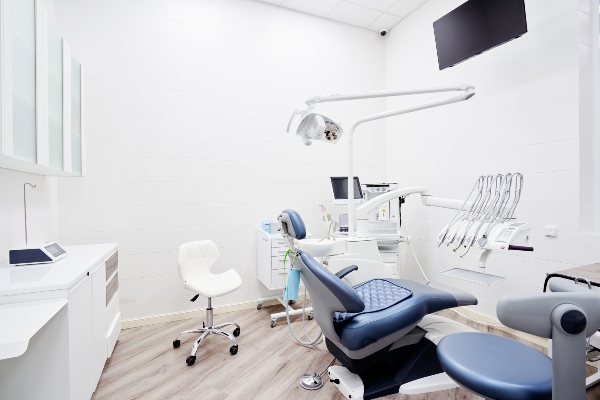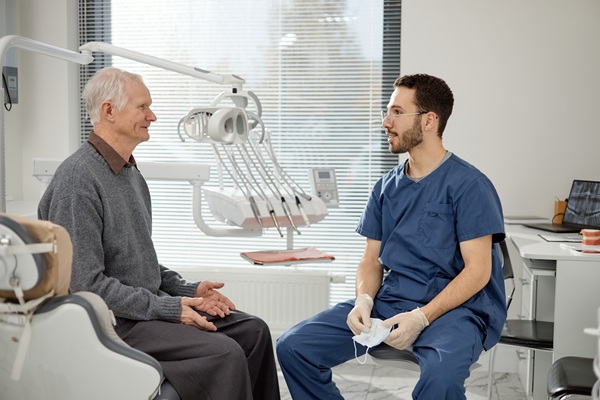 A broken tooth can be distressing, especially if you do not know where to turn when it happens. However, if a broken tooth is not an emergency, your general dentist can fix it in several ways. These professionals are skilled in restorative and cosmetic dentistry, which are important for repairing teeth.
A broken tooth can be distressing, especially if you do not know where to turn when it happens. However, if a broken tooth is not an emergency, your general dentist can fix it in several ways. These professionals are skilled in restorative and cosmetic dentistry, which are important for repairing teeth.
When a broken tooth is a dental emergency
If the affected area has bleeding, significant damage, or pain, this is likely a sign of a dental emergency. In this case, waiting for your regular dentist to fix a broken tooth may not be an option. A knocked-out tooth is always an emergency, and damage to molars is more likely to require emergency intervention.
Sometimes a broken tooth may not show obvious symptoms of being an emergency when, in fact, the damage is more serious than the patient realizes. For this reason, a patient's first step should be to call their regular dentist to discuss the situation. If the dentist decides it is an emergency, they will either try to get the patient in right away or refer them to an emergency dentist.
Ways a general dentist can fix a broken tooth
Even if a broken tooth is not an emergency, it does not mean it is purely a cosmetic concern. Even minor chips or cracks can leave a tooth more vulnerable to decay, worsening damage, and impairing the way you speak and chew. In addition, it can feel rough to the touch and irritate the surrounding soft tissue. Therefore a general dentist may recommend repairing it in one of the following ways:
- Tooth reshaping: For minor damage, the dentist may only need to remove a small amount of enamel to smooth out the service and remove any roughness. Then the dentist will polish the affected area.
- Dental bonding: If the damage is on a more visible tooth, like a front tooth, a dentist can repair it with dental bonding. The dentist will use composite resin material, shape and cure it with a special light. Then, the dentist will make the bonding match the surrounding enamel.
- Dental fillings: The dentist may choose a dental filling for minor damage to the molars or premolars. Molars and premolars typically handle more biting force than front teeth. Therefore, the dentist may like to use a stronger material like amalgam.
- Root canal and crown: If a crack has reached the pulp chamber, the dentist may need to perform a root canal and reinforce the tooth by covering it with a dental crown.
- Inlays and onlays: If the damage is not serious enough for a dental crown but more extensive than can be remedied by dental bonding or a filling, the dentist may repair the damage with one of these restorations. Inlays and onlays are dental restorations fabricated outside the mouth to replace parts of tooth structure.
What to do while you wait
If the dentist decides the broken tooth is not an emergency, they will do their best to get you in as soon as possible. However, in the meantime, they will advise on caring for your tooth before the appointment. A general dentist will likely tell you to avoid chewing on the side of the mouth with the broken tooth and to cover any rough, jagged edges with dental wax or sugarless gum. Sticking to softer foods is helpful, and patients can usually manage any discomfort with an over-the-counter pain reliever.
Plan ahead
We hope this article has been helpful. Knowing what you will do when the unexpected happens makes managing a situation easier. This is especially true when dealing with dental issues such as broken or damaged teeth. Call our team today to learn how a general dentist can fix a broken tooth.
Request an appointment or call Davis & Dingle Family Dentistry at 803-567-1804 for an appointment in our Columbia office.
Recent Posts
Halitosis treatment targets root causes, like gum disease or decay, to provide a path to fresher breath and a healthier smile. This approach addresses persistent bad breath at its source rather than simply masking odors. With the right treatment from a general dentist, patients can achieve lasting fresh breath and improved confidence in their daily…
Even if we do not like it, there is a reason our general dentist recommends routine visits at least every six months. In fact, there are several important reasons why we should get into the habit of going to the dentist for regular visits as often as is necessary or as is told. The visits…
Bad breath can feel uncomfortable and embarrassing, even more so when it does not seem to go away. If you are struggling with chronic bad breath, a general dentist can help. Many treatment options are available, some of which take place at home. In this article, we will explore the common causes of bad breath…


